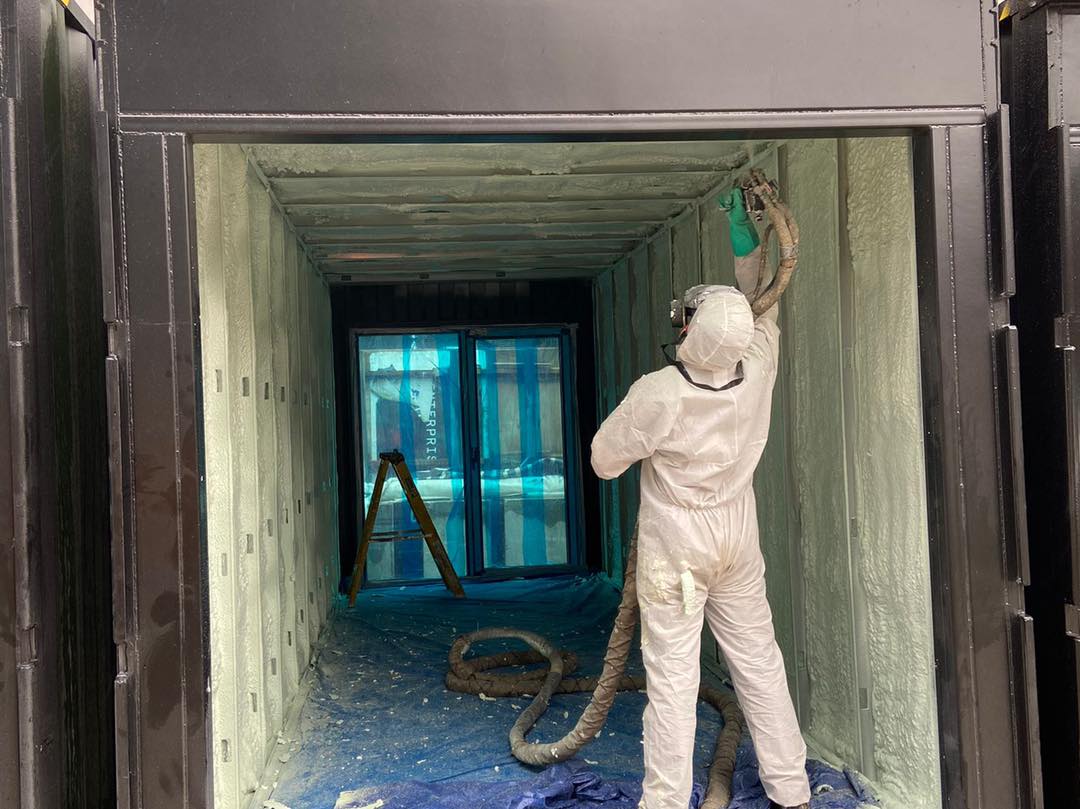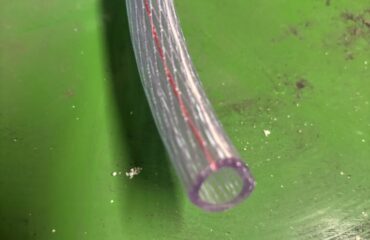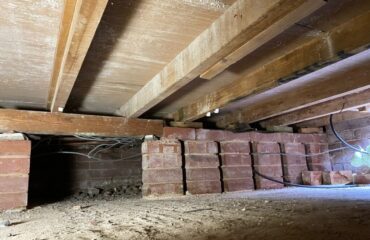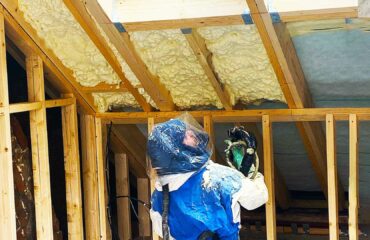
Traditional Insulation Pit Falls
Choosing the correct insulation for a shipping container is critical to preventing issues with condensation. The way shipping containers are built, means the walls are not flat. This makes it impossible to get any traditional form of insulation to follow the contour of the outer skin without gapping. This causes issues as it leaves a cold surface behind the insulation where condensation can form. With the lack of ventilation on the cold side, moisture can become trapped. This can be bad news for the container & contents alike.
Why consider Spray Foam
Spray foam insulation bonds directly to the surface, following the contour of the outer skin. This removes cold surfaces for condensation to form on as there is no longer a gap. There are two types of spray foam, open cell and closed cell. Closed cell spray foam is the most suitable for a shipping container due to the vapour resistance of the product. Another advantage for closed cell is a thinner application can be used. With a thinner spray, your shipping container loses less space. This ensures the maximum room is left to utilise for your project.
Boarding
If you plan to board over the insulation, you will need to choose a suitable frame to fix the boards to. These frames can be timber or metal. Ideally you want to stand the frame off from the external wall. This allows the insulation to fill the space behind the frame and helps eliminate cold bridging.
Vapour Barrier
Before boarding, for extra protection we advise fitting a suitable vapour barrier over the insulation. Although closed cell insulation has a high resistance to moisture, it is still only a vapour retarder. There is a difference between a vapour retarder and a vapour barrier. In most cases closed cell foam on its own is enough to stop moisture and condensation build up. For extra protection and where the foam is to be boarded over, we would advise an additional vapour barrier to be fitted.
Flues and Other Heat Generating Appliances
When fitting a flue for a boiler or heater, make sure this is suitably protected from direct contact with the insulation. Also consider adequate ventilation for combustion reasons. Seek advice from the installers or manufacturers of these appliances about their requirements prior to installation to avoid any issues later down the line.
Help Is At Hand
Green Horizon Energy Solutions will guide you through the best practices when it comes to insulating your shipping container. Whatever the purpose – storage, office or workshop, we ensure the insulation is fit for your needs. We work with you to make sure building regulation requirements are met to create the perfect habitable space to meet your requirements.


